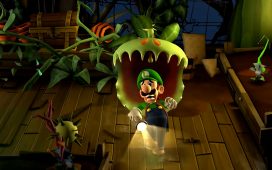The sound is loud and clear, the stage is close and the toilets usually better than temporary units. The only thing a gig in a cinema might lack is a moshpit for fans to squeeze into at the front. According to the award-winning filmmaker Anton Corbijn, one-off big-screen music events now come a close second to the live concert experience and have a growing value for both fans and musicians.
“It is a real event, rather than seeing it on TV on your own at home. This is like a concert, and it is a more exclusive way to see a band that also brings people together,” Corbijn told the Observer this weekend, ahead of the worldwide cinematic event that is to launch his new Depeche Mode film later this month.

The 90-minute film, Spirits in the Forest, is a concert documentary, but it is also a tribute to the band’s fervent international fans. It is this inclusive attitude that can make single-night music events work well for a cinema audience, Corbijn believes.
“Of course, it is still fantastic to see a live concert, but not everyone can. And this is a way of getting some return on your money after a tour, now that fewer DVDs are being sold,” he said. “Nick Cave did it, Coldplay did it and Metallica have just done it, so it is a new way to make live concert films feel live again.”
The limited cinematic release strategy – in this case courtesy of Trafalgar Releasing, which also regularly brings ballet and opera performances to the big screen – does seem to encourage fans to organise tickets for a communal event. Heavy-metal veterans Metallica banked a record-breaking £4.3m last month on just the first night of a two-date run when Trafalgar released their latest concert film, S&M², bringing audiences the band’s recent reunion show with the San Francisco Symphony orchestra. And next week pop music fans in 60 countries will be able to catch Colombian singer Shakira in a film shot on her El Dorado world tour.
Corbijn, initially a noted photographer, won acclaim in 2007 for Control, his film drama about the troubled life of the late Joy Division singer Ian Curtis. Yet he is not tempted to return to looking at the backstage life of the stars, he said.
“Control was such a one-off for me, and then suddenly everybody sent me scripts about other dead singers, like Jeff Buckley, Kurt Cobain and Marvin Gaye. I’ve worked with Depeche for decades now and they are different to any other band. In the late 80s, I realised my visuals and their sound go together really well. It all grew organically, with no big meetings or negotiations.”
Corbijn, 64, also suspects that Depeche Mode’s fanbase is distinct from other bands’ because “they all feel they are members of a big club”.
And the Dutch-born director’s treatment of their 115-date Global Spirit tour is appropriately centred on the fans’ experience. It focuses on the stories of six devoted followers of the band who have travelled from as far afield as Colombia and Mongolia for the gig at Berlin’s Waldbühne (Forest Stage) stadium.
“It is amazing that Depeche Mode can touch so many people’s lives. These fans have very diverse stories and diverse cultures, so we set about a plan to film them in their own environments and then bring them all together for the concert,” said Corbijn.
All six were inveterate Depeche Mode fans with moving personal stories. Five had already seen them play live but one, a young Mongolian tour guide, had never left her own country before.
Corbijn suspects the band’s grip on the imagination of such a disparate group is down to the lyrics of guitarist Martin Gore’s songs. “The themes of Martin’s songs connect a lot with people who feel they need guidance, or perhaps a helping hand,” he said.
The group, which came to fame in the electronic pop boom of the 1980s, has been through many style transformations but has somehow kept a strong emotional bond with fans. This, for Corbijn, makes Depeche Mode the perfect performers for a cinema event.
“Depeche has something cult-like about them, so the concert experience is special,” said the director, who designs the stage sets and also works with U2. “Depeche put out an album every four years or so and have a tour, but that’s it. You don’t see them on chat shows. They are sort of reclusive. Other bands, like U2, don’t have quite that same cult feeling because they are very open and talk about everything.”













